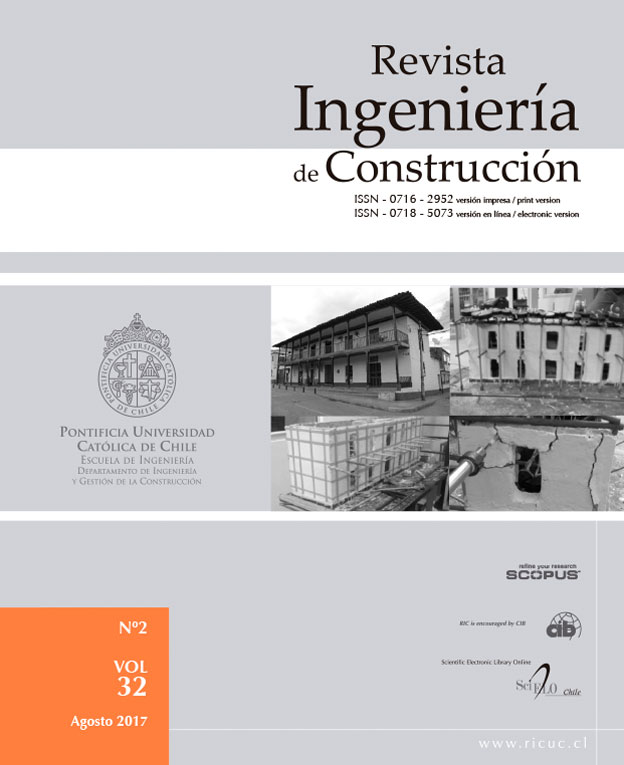Flexural mechanical properties of steel fiber reinforced concrete under corrosive environments
Keywords:
SRFC, chloride ion, corrosion initiation, flexural test, deflection, toughnessAbstract
The influence of two corrosive environments at a short term and the fiber dosage on the flexural performance of steel fiber reinforced concrete, SFRC, is assessed in this paper. The experimental program comprised the tests of 54 SFRC specimens having steel fibers characterized by a length/diameter ratio of 65 and fiber dosages of 30 and 60 kg/m3 . Regarding the corrosive environments, cylinders and beams were subjected to the action of a watery environment and to an environment of 3.5% NaCl solution (chloride ion) during a period of 60 days. The results were compared with those of cylinders and beams kept in unaltered conditions. For this exposure time that is equivalent to the corrosion initiation phase, it was observed that chloride ions of 3.5% NaCl solution cause degradation in mechanical performance of SFRC; for instance, loss of flexural strength of roughly 10% and reduction of flexural toughness equal to 11%. However, saline exposure caused an increase of the deflection capacity of SFRC for the initiation phase of corrosion, which can improve its ductility and bond capacity between the matrix and embedded steel fibers. Finally, equations have been proposed to describe the effect of watery and saline environments in the initiation phase of corrosion on CRFA subjected to bending stresses.

